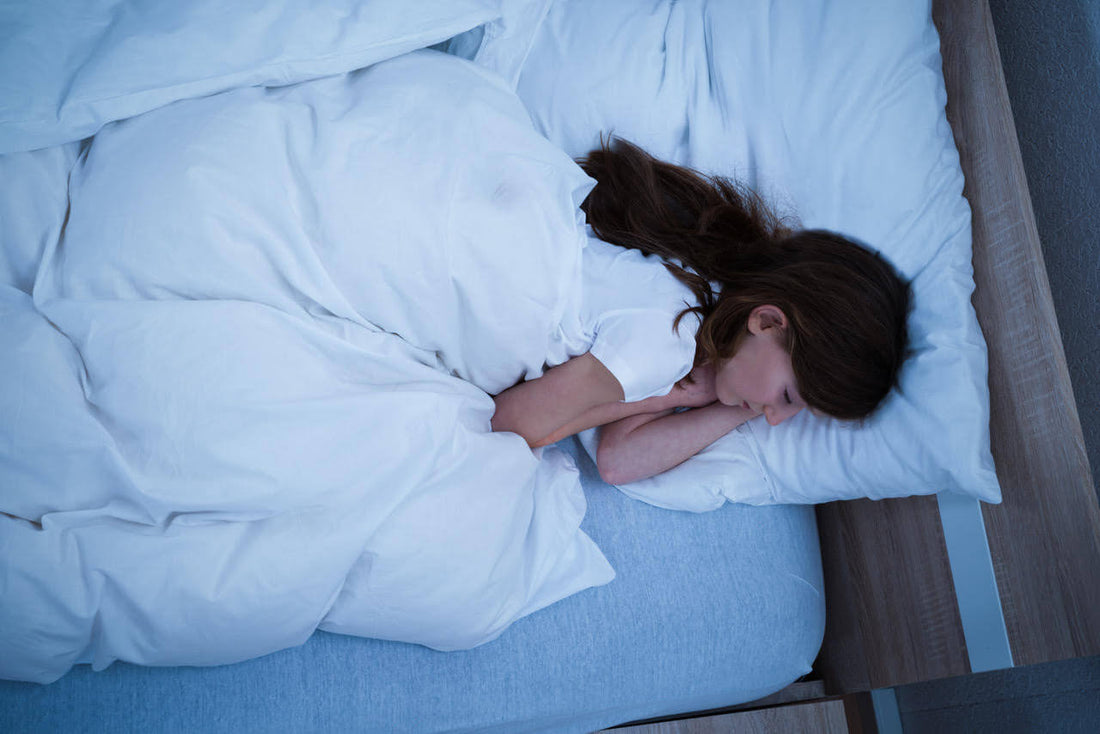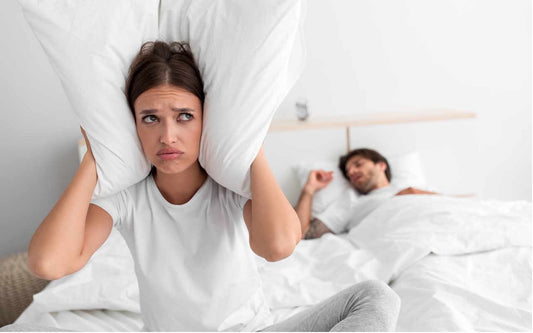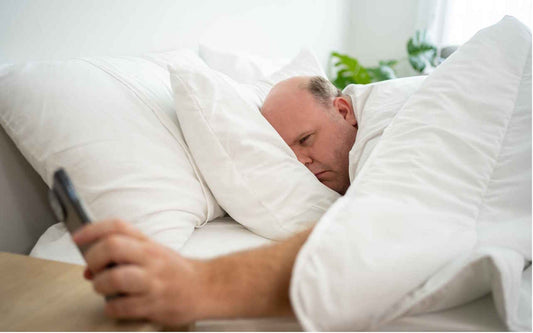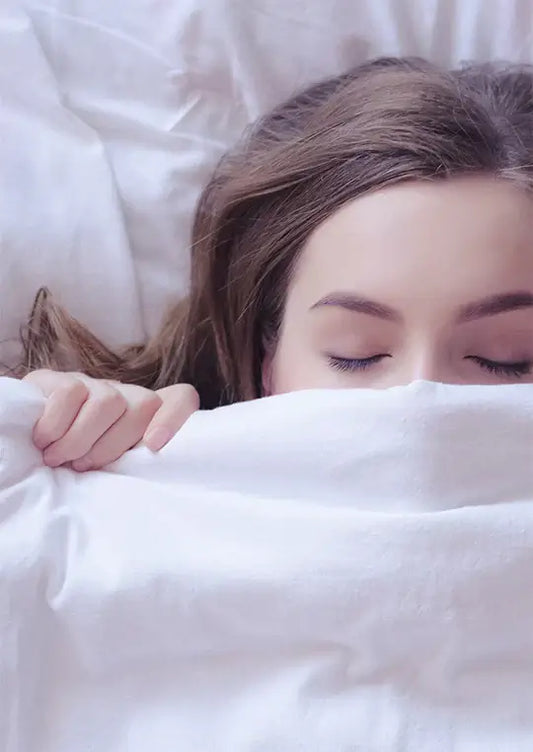Sleep Chronotype: Test and Complete Guide 2025 💤
Discover if you're a Lion, Bear, Wolf or Dolphin - Take the scientifically-proven Horne & Östberg test to optimize your sleep and boost productivity by 40%
Unlock your optimal sleep schedule instantly by discovering your unique sleep chronotype through the scientifically-validated Horne & Östberg test - the gold standard assessment that reveals whether you're a morning lion, balanced bear, evening wolf, or irregular dolphin, enabling you to align your daily activities with your natural biological rhythm for improved sleep quality, enhanced productivity, and better overall health.
Your sleep chronotype is an individual characteristic determining when you're naturally most awake and efficient, linked to your internal clock or circadian rhythm that regulates sleep-wake cycles over 24 hours. Understanding this biological preference through proper testing allows you to schedule work during peak performance times, sync with your partner's rhythm, and finally understand why traditional sleep advice might not work for you.
Quick Reference Guide: Chronotype Optimization
| Important Points | Summary |
|---|---|
| The Horne & Östberg Test | 19-question quiz to find out if you're a morning, evening or intermediate person |
| Other Questionnaires | MCTQ, CSM, and mobile apps like Sleep Cycle to assess chronotype |
| Morning Chronotypes | Maintain regular routine, expose to natural light, avoid screens before sleep |
| Intermediate Chronotypes | Plan major activities 10am-4pm, avoid heavy meals before bed |
| Evening Chronotypes | Limit afternoon caffeine, establish relaxing routine, morning light exposure |
| Irregular Chronotypes | Establish strict routine, practice relaxation, limit stimulants |
Chronotype Distribution in Population
The 4 Main Sleep Chronotypes

🦁 The Lion (Morning)
Wake naturally before 6am, peak energy 8am-12pm, most productive in morning hours, prefer early bedtime 9-10pm. Account for 15% of population.
🐻 The Bear (Intermediate)
Follow sun's rhythm, wake 7-8am, best productivity mid-morning, energy dip after lunch, bed 10-11pm. Most common at 50% of population.
🐺 The Wolf (Evening)
Struggle before 9am, energy increases throughout day, peak late afternoon/evening, bed after midnight. Represent 15-20% of people.
🐬 The Dolphin (Irregular)
Light fragmented sleep, wake easily at night, fluctuating energy, sleep anxiety tendency, no regular schedule. Least common at 10%.
What Is a Sleep Chronotype?
The Scientific Definition of Chronotype
The sleep chronotype is an individual characteristic that determines the times of day when a person is naturally most awake and most efficient. Scientifically, it's linked to your internal clock, also known as the circadian rhythm, which regulates sleep and wake cycles over a 24-hour period.
Each person has a unique chronotype which can be classified into different categories: morning, intermediate, or vesper (evening). This biological preference is influenced by genetics, particularly the PER3 gene, as well as environmental factors.
What Role Does the Circadian Rhythm Play?
The circadian rhythm regulates the cycles of your day (day/night) and influences periods of sleep, awakening, digestion, and other bodily functions. The circadian rhythm is mainly regulated by exposure to natural light, but it's also influenced by eating habits and physical activity.
For example, regular exposure to blue light in the evening can delay the time at which we fall asleep, thereby altering our chronotype towards a more vesper profile. This is why understanding your natural chronotype is crucial for optimal health.
How to Identify Your Sleep Chronotype?

The Horne and Östberg Test: Reference Method
The Horne and Östberg test, published in 1976, remains the benchmark for determining your chronotype. This test includes 19 questions about your sleeping habits and energy levels during the day.
- • Score less than 41: Evening chronotype (Wolf)
- • Score 42-58: Intermediate chronotype (Bear)
- • Score above 59: Morning chronotype (Lion)
- • Total score ranges from 16 to 86 points
Other Questionnaires and Assessment Tools
There are several alternatives to the Horne and Östberg test:
- The Munich ChronoType Questionnaire (MCTQ): shorter, focuses on sleep habits on work and rest days
- Composite Scale of Morningness (CSM): simplified version of the Horne and Östberg test
- Mobile applications like Sleep Cycle or Sleepytime: analyze sleep cycles using smartphone sensors
⚠️ These tools can give you a quick overview but are generally less accurate than the reference test.
4-Step Chronotype Assessment Process
Take the Test
Answer 19 questions about your natural sleep preferences and daily energy patterns
Calculate Score
Sum your responses to get a total score between 16-86 points
Identify Type
Match your score to discover if you're a Lion, Bear, Wolf, or Dolphin
Optimize Schedule
Adjust your daily routine based on your chronotype for peak performance
Optimizing Your Sleep According to Your Chronotype
Tips for Morning Chronotypes (Lions)
If you have a morning chronotype, here are key tips:
- Maintain a regular bedtime routine: go to bed and wake at same time daily, even weekends
- Expose yourself to natural light first thing: boost your biological clock and stay alert
- Avoid screens before bed: blue light disrupts melatonin production
- Get regular exercise: improves sleep quality and helps you fall asleep easier
- Plan important tasks in the morning and take a nap after lunch if possible
Tips for Intermediate Chronotypes (Bears)
If you're an intermediate chronotype:
- Respect your natural rhythm: plan important activities between 10am and 4pm
- Avoid heavy meals before bed: can disturb sleep and cause night wakings
- Take a short nap if needed: 20-30 minutes can recharge without disrupting night sleep
- Create conducive sleeping environment: dark, quiet, and cool bedroom
- Avoid screens in evening and maintain regular sleep schedule
Tips for Evening Chronotypes (Wolves)
Evening chronotypes should:
- Limit caffeine in afternoon: stays in system for hours and disrupts sleep
- Establish relaxing bedtime routine: reading, meditation, or hot bath
- Avoid screens at least 1 hour before bed: blue light delays melatonin
- Try morning light exposure: helps advance biological clock
- Expose face to natural light upon waking and avoid caffeine after 2pm
Recommendations for Irregular Chronotypes (Dolphins)
Irregular chronotypes often have light, fragmented sleep. Recommendations include:
- Establish strict sleep routine: same bedtime and wake time daily
- Practice relaxation techniques: breathing exercises, meditation, or yoga
- Limit stimulants: avoid caffeine and alcohol late in day
- Create optimal sleeping environment: use earplugs or sleep mask if necessary
- Establish soothing routine before bedtime and create environment conducive to sleep
The Impact of Chronotype on Health and Performance

Chronotype and Risk of Sleep Disorders
Based on INSERM data, chronotype significantly impacts sleep disorder risk:
- Evening chronotypes (wolves) have increased risk of insomnia - 1.5 times more likely than morning types
- Morning chronotypes (lions) more likely to suffer from early awakenings
- Irregular chronotypes (dolphins) have higher risk of fragmented sleep and difficulty falling asleep
Sleep specialist Dr. Michael Breus explains: "Understanding your chronotype allows you to adapt your sleep habits and reduce the risk of sleep disorders."
Influence on Productivity at Work
Chronotype has a direct impact on cognitive performance and productivity at work:
- Morning chronotypes generally perform better at start of day
- Evening chronotypes reach peak productivity in late afternoon and evening
- Intermediate chronotypes (bears) have stable productivity throughout day
✅ To maximize productivity, schedule your most important tasks during natural peak energy hours.
Chronotype and Career Choice
Your chronotype can influence career choices and job satisfaction:
- Morning chronotypes often attracted to professions with early hours (baker, teacher)
- Evening chronotypes more likely to work flexible hours or night shifts (artists, developers)
- Intermediate chronotypes adapt well to traditional office hours
Chronobiologist Dr. Till Roenneberg states: "Choosing a career in line with your chronotype can significantly improve quality of life and professional performance."
Understanding Your Circadian Rhythm

Your circadian rhythm is the master controller of your chronotype, regulating not just sleep but also hormone production, body temperature, and cognitive performance throughout the 24-hour cycle. Light exposure is the primary synchronizer, with morning light advancing your clock and evening light delaying it.
Advances circadian rhythm, helps evening types wake earlier
Prevents melatonin suppression, crucial for all chronotypes
Eating schedule influences circadian rhythm alignment
Physical activity can shift circadian phase when timed correctly
Adapting Your Lifestyle to Your Chronotype

Your Diet and Chronotype
Adapting your diet to your chronotype can optimize your energy and health. Recommendations based on profile:
- Morning chronotype (lion): hearty breakfast before 8am, light dinner before 7pm
- Intermediate chronotype (bear): eat regularly between 8am and 8pm
- Evening chronotype (wolf): light breakfast around 9:30am, substantial dinner around 8pm
Dr. Michael Breus points out: "Respecting your dietary biorhythm allows you to optimize your daily calorie intake and reduce the risk of health problems such as diabetes."
Physical Exercise and Chronotype
Adapt your sports routine to your chronotype:
- Morning chronotype: exercise between 7am and 10am
- Intermediate chronotype: opt for session between 11am and 2pm
- Evening chronotype: train between 5pm and 8pm
Research shows athletes perform better when training close to their natural circadian peak. I've personally noticed improvement in my running performance since adapting my training schedule to my morning chronotype.
Managing Stress According to Your Chronotype
Suitable stress management strategies:
- Morning chronotype: practice meditation in evening to relax before bed
- Intermediate chronotype: take short nap in early afternoon to recharge
- Evening chronotype: start day with breathing exercises to boost energy
Chronobiologist Dr. Till Roenneberg states: "Aligning your stress management activities with your chronotype can significantly improve your overall wellbeing and productivity."
Chronotype Changes Throughout Life
Young children naturally wake early and have energy peaks in morning
Teenagers experience biological shift toward later sleep and wake times
Around age 19.5 for women and 21 for men - most extreme night owl phase
Progressive shift back toward earlier sleep-wake patterns
Generally have more early morning chronotype with earlier sleep times
Frequently Asked Questions About Sleep Chronotypes
Optimize Your Sleep Quality Regardless of Chronotype
If you experience sleep disruptions from snoring or breathing issues that prevent you from following your natural chronotype rhythm, consider exploring solutions that work for all chronotypes. The Back2Sleep nasal stent helps maintain open airways throughout the night, allowing you to sleep according to your natural rhythm without breathing interruptions.
Ready to Optimize Your Sleep?
Take the chronotype test today and start aligning your life with your natural rhythm. Better sleep, improved productivity, and enhanced wellbeing await.
Get Personalized Sleep AdviceAdditional Resources for Better Sleep
Understanding your chronotype is the first step to optimizing your sleep health. For comprehensive sleep improvement strategies, explore our sleep science blog with articles on circadian rhythms, sleep disorders, and optimization techniques tailored to each chronotype.
Learn more about our mission to help millions achieve better sleep quality through innovative solutions and education. Whether you're a morning lion struggling with evening social events or an evening wolf forced into early morning meetings, understanding your biological rhythm is key to thriving.
Remember: Respecting your chronotype is fundamental to health and wellbeing. When you work with your natural rhythm instead of against it, everything from productivity to relationships improves. Start by taking the Horne & Östberg test, implement the personalized recommendations for your type, and consider addressing any physical sleep issues that might be preventing you from achieving optimal rest.








